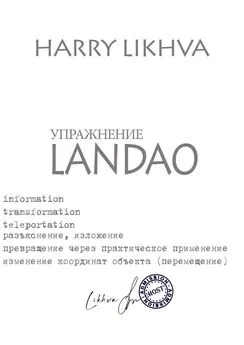Harry Turtledove - Give me back my Legions!
- Название:Give me back my Legions!
- Автор:
- Жанр:
- Издательство:неизвестно
- Год:неизвестен
- ISBN:нет данных
- Рейтинг:
- Избранное:Добавить в избранное
-
Отзывы:
-
Ваша оценка:
Harry Turtledove - Give me back my Legions! краткое содержание
Give me back my Legions! - читать онлайн бесплатно полную версию (весь текст целиком)
Интервал:
Закладка:
“One more step in bringing Roman ways here,” Varus said. Arminius made himself smile and nod. He glanced toward his father. Sigimerus was nodding, too, but no smile lightened his features. Varus, fortunately, didn’t notice.
Lightning flashed. Thunder boomed. Rain poured down out of a dark gray sky. The Romans squashing through the mire between Mindenum and the headwaters of the Lupia cursed the gods who oversaw the weather in Germany.
Unlike most of the legionaries, Quinctilius Varus was mounted. That kept him from getting muddy past the knees, the way they did. But he couldn’t have got any wetter in the pools inside a bathhouse. The chilly, drumming, relentless rain stayed in his eyes, his nose, his mouth, his ears.
“A fish could do as well in this as I could!” He had to shout to make himself heard through the downpour.
“That’s a fact, sir.” Vala Numonius shouted, too. “And a fish would be more comfortable in its scales than I am in my cloak.” The wool garment clung to him the way a caul was said to cling to some newborn babes. Varus’ did the same thing. Soaked in rainwater, it was not only clinging but heavy.
The Roman governor’s eyes slid to Aristocles. The slave rode a donkey, so he too was out of the worst of it. But he looked like a drowned mouse. Some of the legionaries had their hair in their eyes. Varus and Aristocles didn’t: the first advantage to balding the governor had discovered. Water dripped off the end of Aristocles’ pointed nose. The pedisequus didn’t say anything, but every line of his body and of his cloak screamed out a reproach.
“One thing, sir,” Lucius Eggius said. “We don’t have to worry about the Germans jumping us in a storm like this.”
“Oh? Why not?” Varus had been worrying about just that.
“Don’t be silly, sir,” Eggius said. Before Varus could decided whether to be affronted, Eggius went on, “The savages would have as much trouble moving as we do.”
“Ah.” That hadn’t occurred to Varus. “Yes, one man’s miseries are every man’s miseries, aren’t they?” In spite of the deluge, he smiled, pleased with himself. “I’ve heard aphorisms I liked less.”
Vala Numonius also smiled. Eggius’ shrug loosed a small freshet from his shoulders. Varus wondered if he knew what an aphorism was. Career soldiers were more cultured than Germans, but sometimes not much more.
That reminded the Roman governor of something. “We might have been able to steer clear of all this.” His horse chose that moment to step into a deep puddle - the poor beast couldn’t see where to put its feet, after all. Varus had to grab its mane like a tyro and hang on for dear life to keep from getting pitched headlong into the slop.
Neither Vala Numonius nor Lucius Eggius laughed at him. It could have happened to them, too, and they both knew it. After Varus was securely seated once more, Numonius asked, “What do you mean, sir?”
“Arminius told me of a route back to the Rhine that never floods,” Varus replied. “If it’s raining when we leave Mindenum next fall, to the crows with me if I don’t think I’ll let him show it to us. I don’t care if it is longer, if it means we don’t have to put up with this again.”
“I didn’t think there were any places in Germany that never flooded,” Eggius said. “Are you sure that blond bastard isn’t hiding something under his cloak . . . sir?”
He tacked on the title of respect too late to do himself any good. Better, in fact, if he’d left it off altogether. The slit-eyed look Quinctilius Varus sent him had nothing to do with the rain. “Why would you think showing us a better route smacks of treachery?” Varus inquired.
“I didn’t say that, sir.” This time, Eggius used the title without hesitation. But it was too late to mollify Quinctilius Varus. “I’d sure want to make sure the route was good before I used it, though.”
“Do you imagine a Roman citizen - and a member of the Equestrian Order - would intentionally mislead his fellows?” Varus asked in tones colder than the rain.
“He may be a Roman citizen, sir, but he’s still a German, too.” Lucius Eggius was stubborn.
So was Varus. “He may still be a German, but he is a Roman citizen. Like you, he’s risked his life for Augustus and for Rome.”
He waited. Eggius didn’t say anything. What could the officer say? If Varus had decided to trust Arminius, nothing he heard was likely to persuade him to do anything else. And he had. And every yard his horse fought to gain made him wish he’ d done it sooner.
XII
“He almost bit, Father! By the gods, he almost did!” Arminius couldn’t hide his own excitement as they made their way north and west, back toward their own country. “He was like a fat trout. He nibbled at the worm, and he never saw the hook.”
“Like a trout, or like a water dragon?” Sigimerus asked. “What would you have done if he’d decided to take your route? What could you have done except let him take it - and eat half a dozen tribes out of house and home along the way? No one in Germany would have loved you after that. And you couldn’t have gathered an army together fast enough to fight him.”
Arminius scowled, not because his father was wrong but because he was right. Rain dripped through the pines. Arminius and Sigimerus both had their cloaks up over their heads. They were both wet even so. The rain also turned the track to mud. They slogged on without complaint - things in Germany had always been like this.
“Next year,” Arminius said. “Next year we can be ready - I’m sure of it. All Varus has to do is take the bait.”
“And then what?” Sigimerus insisted on looking at all the things that could go wrong. “Varus and the Romans see we have an army. So what? They have an army, too. They don’t fight like us, but that doesn’t mean they’re bad at it. If they were, we would have driven them off years before you were born.”
Rain dripping off the end of his nose, Arminius scowled again, for the same reason as before. He knew how good the Romans were. He hadn’t just seen them fight or stood against them - he’d used their system. He not only understood that it worked, he understood how it worked.
In his mind’s eye, he heard Roman trumpets blaring. He saw the swarthy little men moving from marching order to line of battle without wasted motion. He imagined the blizzard of javelins they’d send up, the wall of their big shields, and the way their sharp swords would bite like vipers.
“We have to ruin them before they can deploy.” He’d said that before . His inner picture of the legions getting ready to face a German host only made the words seem more urgent now.
Urgency failed to impress his father. “All very well to talk about it. How do you aim to do it?”
The question was as pointed as a Roman gladius. “We have to take them in a place where they can’t swing from column into line,” Arminius said.
“And where will you find a place like that?” his father asked. “You can wish for one, but it’s not the same thing.”
“I’ll do more than wish. I’ll be traveling this winter anyhow. Everywhere I go, I’ll look for what we need. Sooner or later, I’m bound to find it. Germany isn’t all flatlands and fields. If I keep my eyes open, I’ll find something.” Arminius made himself sound confident.
“I hope you’re right,” Sigimerus said. “Me, I’ll be glad to get home to your mother for a while. And I expect you won’t be sorry to see Thusnelda again, either.”
In spite of the rain, Arminius’ blood heated. “That’s so,” he said. He’d bought relief a few times while staying at Mindenum. Seeing German women selling themselves for silver distressed him, but not enough to keep him from taking advantage of them. He thought his father had done the same thing, though neither asked the other about it. If you were a long way from your woman, you took what you could find.
If she did the same while you were away, you had the right to slit her throat and fling her faithless body into a bog. Men didn’t need to be chaste, but women did.
“You should get a child on her,” Sigimerus said. “That will bind her to you even after passion fades.”
“Good advice.” Arminius smiled wolfishly. “You’d best believe I aim to try.” Both men laughed. Arminius tried to pick up the pace, but the sloppy path wouldn’t let him. “Gods curse this mud,” he said, and laughed again, this time on a different note. “Now I understand why the Romans want to build their roads in our land.”
“So they can get to our women in a hurry,” Sigimerus said: one more gibe with too much truth behind it.
A jay screeched, high up in a pine. Most of the birds were gone now, heading off to the south: toward the Roman Empire. Some stubborn ones stayed through the winter, though. Vultures and ravens and carrion crows squabbled over carcasses regardless of the season. Arminius wanted to glut them on Roman meat. He had a plan. He needed a place.
My third winter in Vetera, Quinctilius Varus thought with a kind of benumbed wonder. When he first came up to the Rhine, he could have imagined no fate more dismal than spending three winters here. Now, though, this Roman military town seemed an outpost of civilization compared to what lay beyond the river.
He wasn’t the only one who felt that way. “By the gods, sir, it’s good to have real walls around me and a proper roof over my head,” Aristocles said. “Meaning no disrespect to you and the job you’re doing, but I get tired of living under canvas.”
“I don’t think you’ll fall over dead with surprise if I tell you I feel the same way,” Varus said. “One day, Mindenum will make a fine city, I suppose. Plenty of places that started out as legionary encampments are. Even Vetera’s on the way, though I wouldn’t have believed it when I got here. But Mindenum does have . . . some way to go yet.”
The pedisequus dipped his head in Greek agreement. “Oh, doesn’t it just!” he said fervently. “Why, on this side of the Rhine I can go out beyond the wall by myself without worrying that some savage will murder me and spike my head to a tree.”
“That’s . . . not too likely around Mindenum.” Varus hid a smile, though part of what he hid was wistful. Being a slave, Aristocles didn’t have to pretend to courage he didn’t own. As Roman governor of Germany, Varus did. He knew he’d been better suited to peaceful Syria. Unfortunately, Augustus didn’t, and Augustus’ will was the only one that counted. Not only for Aristocles’ sake but for his own, Varus went on, “The Germans around there have learned more of our ways than any others, I do believe.”
“More, maybe, but not enough.” Plainly, nothing would turn Aristocles into a Germanophile. Well, he wasn’t the only one who felt that way.
“We need time, that’s all.” Again, Varus worked to convince himself, too. “When I was born, these Gauls on this side of the river were nothing but trousered barbarians still smarting after Caesar’s conquest. You can’t tell me they don’t make good Roman subjects now.”
“Tolerable, I suppose.” Truth to tell, Aristocles didn’t approve of anything north of the Alps. “At least they mostly use olive oil, not butter.” He wrinkled his nose. “More than you can say about the Germans.”
“The olive won’t grow there,” Varus said. “For that matter, it won’t grow here, either, though it will farther south in Gaul. But our merchants take the oil all over the province. They can do the same in Germany. They will, once we get the place a little more settled.”
Читать дальшеИнтервал:
Закладка:







